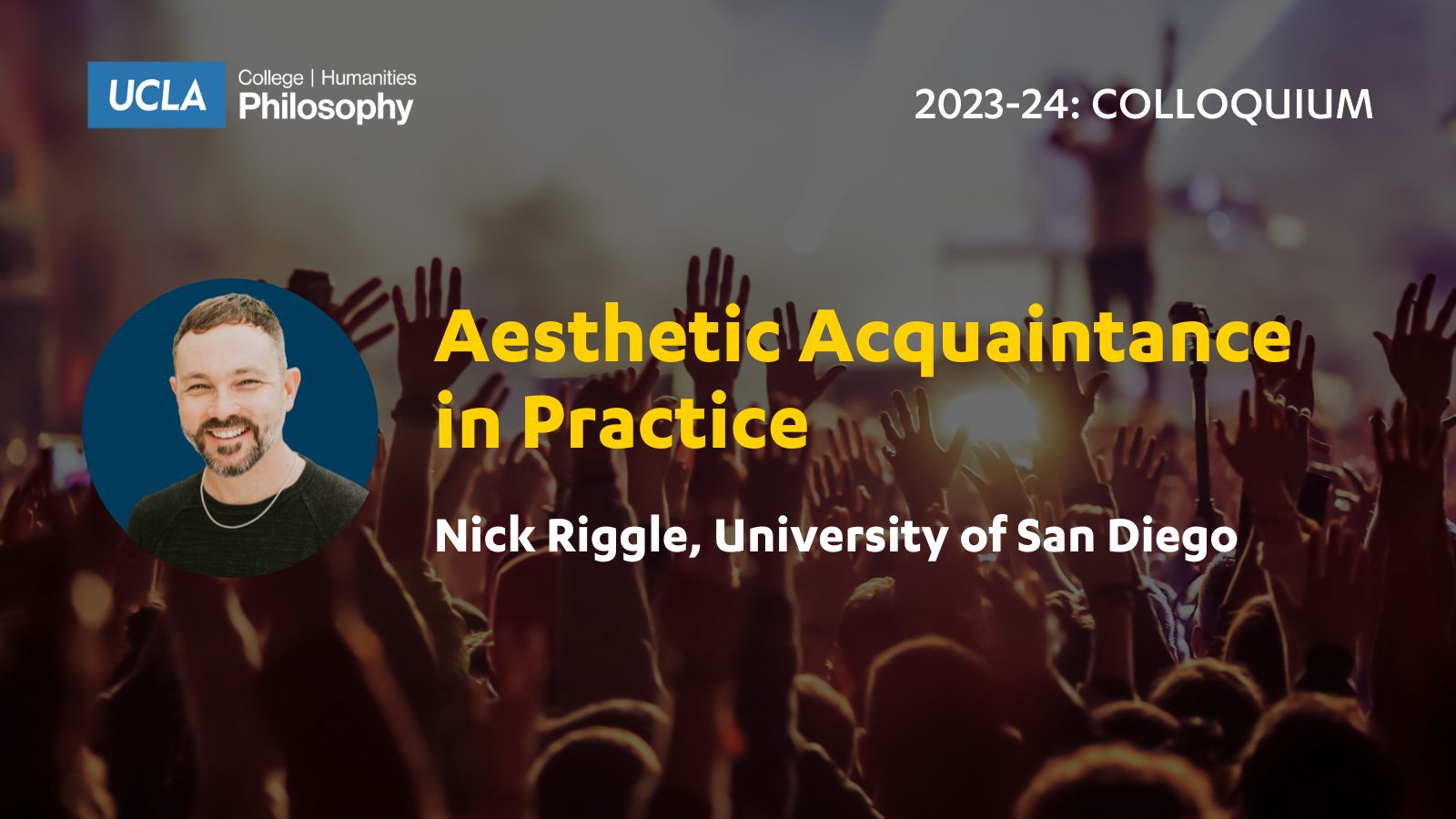
- This event has passed.
2023-24 Colloquium: “Aesthetic Acquaintance in Practice”

October 20, 2023 | 4:00PM – 6:00PM
Kaplan 193 & Zoom
RSVP HERE
Zoom link:
https://ucla.zoom.us/j/97140529852?pwd=a1NSL1AwVnBrMnF3eStHQTg4RlhDdz09
Meeting ID: 971 4052 9852
Passcode: 314912
Join us on October 20, 2023 for a colloquium with Nick Riggle, University of San Diego. The talk will take place in Kaplan 193 (and via Zoom) from 4:00PM – 6:00PM with a reception on the Shostak Terrace to follow.
RSVP HERE
Aesthetic Acquaintance in Practice
The Acquaintance Principle (AP)—the claim that aesthetic beliefs must be based on first-hand engagement and not on testimony—used to be “well-entrenched” in aesthetics. But today there is a near consensus that it fails in the light of a range of apparent counterexamples. Even pessimists about aesthetic testimony who believe in the spirit of AP reformulate its letter to accommodate these counterexamples. I will argue that when AP is correctly understood, a position opens up that accommodates both pessimism and optimism. AP is not a principle to which there are counterexamples but rather a practice-governing rule to which there are legitimate exceptions. As such, the so-called counterexamples do little to diminish the rule. The view results, in part, from appreciating how the norms of aesthetic valuing require us to apply AP not merely to the hearer but also to the speaker: one must base one’s aesthetic beliefs on one’s own engagement with their objects, and not only must aesthetic testimony not be accepted, it must not be offered. The exceptions to AP allow aesthetic knowledge to pass around under special circumstances but do nothing to minimize AP’s importance and force, which can be justified by appeal to central features of the social practice of aesthetic valuing. The result is a more thoroughgoing Unusability Pessimism nestled within a novel communitarian theory of aesthetic value. If this is right, then the decades-long debate between optimists and pessimists dissolves.
Nick Riggle is Associate Professor of Philosophy at the University of San Diego. He completed his BA in philosophy at UC Berkeley, earned his PhD at NYU, and has been teaching at USD since 2015. Riggle’s work is primarily in aesthetics, though his publications draw on and contribute to a range of fields in philosophy, including the philosophy of language, value theory, social philosophy, and the history of philosophy. He writes for both public and academic audiences, and his work has appeared in The Philosophical Review, The Philosophical Quarterly, Philosophers’ Imprint, The New York Times, Aeon, Penguin Books, McSweeney’s Internet Tendency, and many other outlets. His most recent book, This Beauty: A Philosophy of Being Alive, explores the existential significance of valuing beauty.

